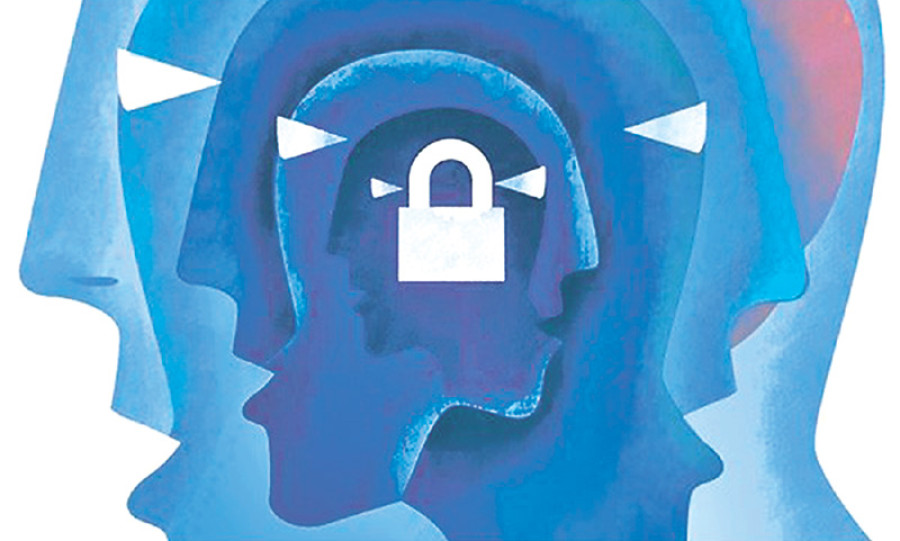Opinion
Nepalis and nationalism
It was a cold December night in Japan. Two friends and I were going to Khameyama railway station by taxi.
Meera Rajbhandari Amatya
It was a cold December night in Japan. Two friends and I were going to Khameyama railway station by taxi. On our way, an old woman stopped our vehicle, and the driver courteously asked her where she was going. Then he turned towards us and asked if we could first drop the old lady off at her place. Touched by his compassion, we agreed and turned in a direction away from our destination.
The lady must have been around 70 years old; and by her appearance, she looked destitute. She didn’t seem to have bathed for days, and had very bad body odour. But the driver sitting beside her looked peaceful and untroubled. On reaching her place, which was a small house by the forest, the driver helped her with her belongings and apologised to us for being late. Then he turned on the taximeter again, and we headed back to our railway station. The incident touched our hearts. We were very impressed by the way the taxi driver put his nationalism and patriotism in action. We were very proud of him because his honesty and the way he performed his duty towards his nation as his obligation as a cab driver.
Quite different here
I encountered a different kind of taxi driver about six years ago when my friend had lost her mother. After completing the last rites, we were looking for a taxi to get back home. Since all of us were barefoot and in white clothes, anyone could guess that we were returning from Aryaghat. While searching for a taxi, we asked one of the drivers, who was busy playing cards, to take us home. He asked, “Will you pay Rs500?” Since it was just up to Baneshwor, we tried to bargain with him; but he rudely ignored us and resumed playing cards.
Another example of apathy I would like to cite is from about seven years ago when our neighbourhood was flooded by the rains. The drains would overflow annually during the monsoon, but that year it was particularly bad. We had to climb atop compound walls to get to our houses. We were expecting the municipality to help us, but no one was ready to look into the problem. The then executive director of Kathmandu Metropolitan City lived in the community next to ours. But even though he witnessed the situation every day, he folded his arms and asked us what to do. The executive director told us that there was nobody to deal with the matter, so we and our neighbours stood around him and did not leave until he agreed to do something. He soon sent machines and workers to solve the drainage problem. The incident made me wonder about Nepali nationalism and patriotism.
And today, I see people arguing over issues, but hardly anyone seems to care about social harmony, nationalism and the nation. While some of us are against presenting ‘khadas’, others are raising their voices against
Teej and other Hindu rituals. The wounds of conflict between the Madhesis and the Pahadis have not been healed. At the same time, one Pahadiya group has been speaking against another Pahadiya group over rituals and other issues. There are no strong laws to control social media where anyone can post arguments against a community’s cultural and ritual traditions. Their supporters hail them as being strong nationalists. My question is whether they are really so. Destruction is happening; ethnic communities are being destroyed in the name of road expansion. Rituals, customs and ethnic groups are being criticised in the name of modernisation and free speech.
Not just words
Nationalism is demonstrated when the state is serious about the voices of different ethnic communities in an equal manner. Nationalism is not expressed by the type of dress people wear or the language they speak. Nationalism is demonstrated when people become serious about national issues and the nation itself. Moreover, nationalism is shown by people’s responsibility towards their civic duty, towards the nation and towards society. In simple terms, nationalism is shown by our small work and responsibility towards our national duty. Honesty and responsibility towards the nation is nationalism. Nationalism is shown by what we do and what we think about society and the nation.
We Nepali people have experienced 10 years of armed conflict and endured autocratic state mechanisms. Now Nepal is a multiparty democratic state. Why can’t we have Thakuwa, Gujhiya and Ghongi of the Tarai, Yomari, Arsha and Sel Roti of the Pahad and Khapse of the Himal? Why do we have barriers to serving different dishes from different communities on one plate? Why should only Brahmin women enjoy dancing and having Dar during Teej? Why don’t we see social harmony in cultural dances such as Rodi of the Gurungs and Dhan Nach of the Limbus? Is it that people from other communities have no ingredients to cook Yomari of the Newars? Will Madhesis be shunned by their community if they have Khapse from the Himal? Will Nepali nationalism diminish if a certain community demands their right to protect their culture and language? We need proper dialogue to address the demands of the people who belong to different communities and promote roles which foster social integrity, not only meetings and gatherings at five-star hotels.
Amatya is president of the Federation of Nepalese Indigenous Nationalities Journalists (FoNIJ) Kathmandu District Committee




 17.9°C Kathmandu
17.9°C Kathmandu











